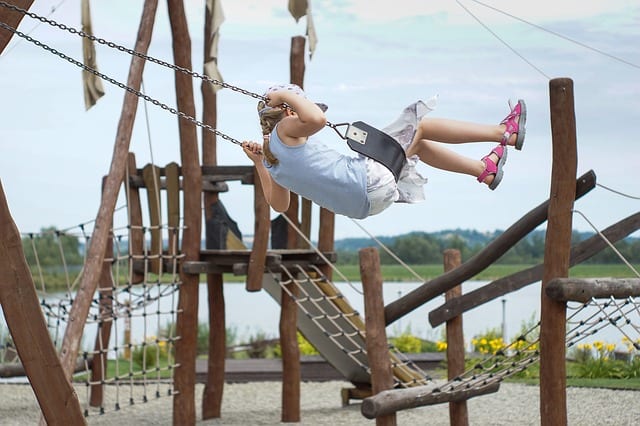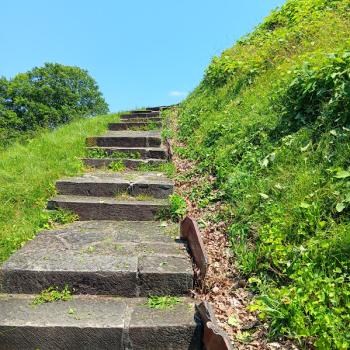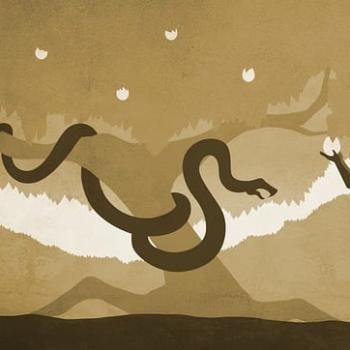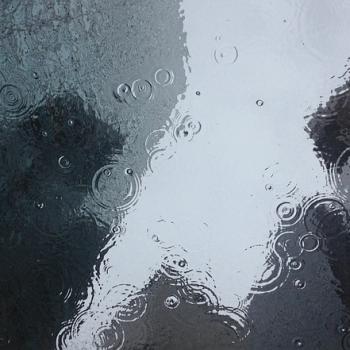
It was a bright day today.
It was marvelously sunny, for the first time since before the wildfire smoke came to Ohio.
Once in awhile, in September and October in Steubenville, we get a perfectly clear day with a sky that’s too blue to be believed and no clouds at all. It was dry, sunny, just cool enough to go walking without a worry that heat would aggravate my fibromyalgia but just warm enough that we wouldn’t need sweaters.
I was tired. There are two kinds of tired that constantly dog you when you have my type of fibromyalgia. The first is a fatigue you can’t fight with caffeine or naps; it drags you down and makes it impossible to move. The second feels similar, but it’s mostly head fog and drowsiness. I can go through the motions of the day and get work done, with that kind of tiredness; it only feels like I have to go to bed. And my tiredness today was the latter kind. I was determined to use it to tackle some badly needed housecleaning, after I got my writing done.
Rosie was antsy. It was her last Saturday as an eight-year-old. She turns nine on Tuesday. She kept coming in to check the calendar and make it be the twenty-second already so she could open her presents. There won’t be a birthday party this year, not with the pandemic, but she’ll get cake and presents. Rosie kept sitting on my lap and forcibly draping one arm over her shoulders while I tried to write, so I shooed her outside.
She poked her head in to tell me that it was a perfect day to fly a kite, and I muttered something noncommittal.
Her face fell.
My heart broke.
“Let’s go to the park,” I said.
Belleview Park is about a mile from our house. We used to live much closer, when Rosie was an infant and we were stuffed into one of those uninhabitable LaBelle apartments on the butt end of Kendall Avenue. I would walk her to the park every bright day, crying, alone, with terrible untreated PTSD and post-partum depression, in the months and years after my parents left the second time. I would sit with her on the grass, staring into space, or mechanically push her on the swing. I would try not to think about the unfenced cliff at one end of the park, dipping down to a rocky, fifty-foot drop. That’s how depressed and lonely I was.
I don’t like that park, because of the memories.
Still, it’s the closest park. Rosie and I put our shoes on and packed two masks in case we couldn’t social distance. She fairly skipped out the door, and I trudged. We skipped and trudged through LaBelle’s gray streets that smell like cats and rotten furniture, under the brightest sky imaginable.
We passed the small house we first lived in, after we fled the apartment.
“Do you remember living there?” I asked Rosie.
“I remember we had a shed in the backyard.”
“Yes. The yard was fenced, so I used to let you run around that yard and behind the shed by yourself with the kitchen door propped open. When we move and get a new house, we’ll get a shed and a fenced in yard. They are nice.”
And then we went down the street we first lived on, when Michael and I were first married and when Rosie came, the place where one thing after another unraveled and all our hopes for a bright future as academics turned to ash. We walked in front of that gray apartment building.
“Do you remember living here at all?”
“I remember I had a dream about a lawnmower breaking down the house.”
“Yes. The lawnmowing service used to come so early in the morning and the mower was so loud, it sounded like it was tearing down the whole house.”
I stared up at that apartment, the second floor, the window near the back porch. That was the window of the room I was raped in. Twelve hours later I was in a hospital in Martin’s Ferry where her accomplice dumped me, and the doctor was mocking me for trusting the local scammer as he cut me open and pulled Rosie, who was a week late, out of my womb.
That happened nine years ago this Tuesday.
I used to rail at God, when we lived in that apartment. I would cry and sob and cuss at him for abandoning us in Steubenville where we only went to follow Him and learn to do His work. Rosie will never know that she was the only thing keeping me from walking off the 50-foot drop at the edge of Belleview Park during those terrible years. She will also never know that my greatest shame and guilt was that I had to raise such a remarkable child in such a hopeless nightmare of a place, in such a cruel world where God seemed so far away. That’s not the kind of thing you burden a nine-year-old child with.
Next thing I knew, we were at the park.
Rosie went straight to the swings. I insisted I couldn’t push her, I was too tired today, and she looked annoyed.
“I can do it myself now, Mom.”
She can. She can pump and kick and work the swing all by herself. She did for a time, and then jumped off to play.
There were just a handful of other children there, so they could run around and shout at each other while keeping a social distance in the fresh air. I sat on the grass and read a book, just a little ways from the quarry. The sky was so blindingly bright I had to orient my body like a sun dial to cast a shadow on the pages, or it would’ve been painful to read.
Behind me was that cliff and the fifty-foot drop. They let the scrubby bushes grow out until some of them are as tall as trees in the years since Rose was a baby. It feels safe now. I wasn’t afraid. I was lying on the grass in a place that reminded me of the worst years of my life, during a pandemic, in a country falling to pieces, on a planet that burning to death, but I wasn’t afraid. It was too bright and beautiful to be afraid.
“Let’s have a swinging contest!” said the boy Rosie met at the park.
“Remember to keep a good distance!” I insisted, and they did, easily. Swinging is something that requires a good distance.
The boy’s father and I chatted from six feet away, about having seen each other around town and at church. He asked where I went to church now, and I said we were still going on video on Sundays, since Michael’s asthma makes him high risk. I didn’t mention how much it hurt to be without weekly Mass; I tried to make it sound perfectly casual so I wouldn’t cry.
“Who’s winning the swinging contest?” asked the boy.
Rosie was. Rosie was pumping and kicking with all of her might, jerking the swing farther and farther up until her body was vertical and her feet pointed into that impossible blue. It looked like she was taking off like a rocket: out of my womb, out of my arms, out of my reach, far and away to her own adventures whether they’re happy or not. All these nine long grinding years of chaos trapped in the Ohio Valley seemed to have gone by in a single afternoon. There I was, still sitting on the grass where I used to play with my baby before she could walk, but my baby was nine years old.
I prayed again, silently, not angry or railing this time, just equal parts happy and sad. God, I still love You. And if you ever remember I exist, and come back to Steubenville to get me, I will forgive You. I will forget all about this terrible valley and I will forgive you.
But I won’t forget. Forgive, yes, a thousand times, but I will never forget this place.
We went home, chatting and planning her birthday cake, under a bright sky.
Image via Wikimedia Commons
Mary Pezzulo is the author of Meditations on the Way of the Cross.
Steel Magnificat operates almost entirely on tips. To tip the author, visit our donate page.













